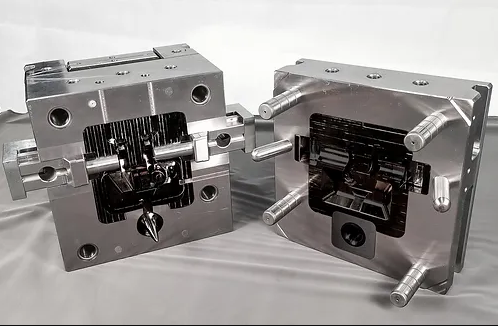Machined casting is a manufacturing process that combines the benefits of casting and machining to produce high-quality, near-net-shape parts. It involves casting a raw metal material into a shape that is close to the final desired product, and then using machining tools to refine the shape and dimensions of the part to the required specifications. Machined casting is widely used in the metalworking industry, and it has become an essential component of modern manufacturing processes, providing significant improvements in precision and efficiency.
The process of machined casting begins with the selection of a suitable raw material. The chosen metal must be able to withstand the heat of the casting process without deforming or cracking. The metal is melted to a liquid state and poured into a mold that is designed to create the desired shape of the part. The mold is made from a material that can withstand the heat of the molten metal without melting or deforming.
After the casting process is complete, the part is removed from the mold and cleaned to remove any remaining mold material. The part is then inspected to ensure that it meets the required specifications. At this stage, the part usually requires some machining to achieve the final desired shape and dimensions. The part is generally machined using a CNC machine, which is programmed to remove material from specific areas of the part to achieve the desired shape and dimensions.
Machined casting has several advantages over traditional manufacturing processes. Firstly, it enables the production of complex shapes that would be difficult or impossible to achieve with other manufacturing processes. This is because casting allows for the creation of intricate details and shapes, while machining enables the refinement of those shapes to the required precision.
Secondly, machined casting can significantly reduce the amount of material waste in the manufacturing process. This is because the near-net-shape casting process produces a part that is already close to the final desired shape, reducing the amount of material that needs to be removed during the machining process. This results in less material waste, which can lead to significant cost savings for manufacturers.
Thirdly, machined casting can improve the overall efficiency of the manufacturing process. This is because the process involves both casting and machining, reducing the need for separate manufacturing processes. This can lead to a reduction in the time and resources required to produce a finished part, resulting in faster and more efficient production.
In addition to these benefits, machined casting also has some limitations. Firstly, the process can be more expensive than other manufacturing processes. This is because it requires specialized equipment and skilled operators to carry out the casting and machining processes. However, the benefits of machined casting often outweigh the costs, particularly for complex parts or high-volume production runs.

Secondly, the process of machined casting may produce parts with some surface imperfections. This is because the casting process can result in some surface irregularities or defects, which can then be removed during the machining process. However, these imperfections may still be visible to the naked eye, and may require additional surface finishing steps to achieve the desired appearance.
In conclusion, machined casting is an essential component of modern manufacturing processes, providing significant improvements in precision and efficiency. The process combines the benefits of casting and machining to produce high-quality, near-net-shape parts that are easy to machine to the required specifications. While the process may be more expensive than other manufacturing processes, the benefits of machined casting often outweigh the costs, particularly for complex parts or high-volume production runs. With its ability to produce complex shapes, reduce material waste, and improve efficiency, machined casting will continue to play an important role in the metalworking industry for years to come.
-

- High precision magnesium thixomolding components UAV cover
-

- Magnesium alloy die-casting auto parts center control cover
-

- Electric Bicycle Magnesium Alloy 12 inch Integrated Wheel 36v10ah Electric Moped
-

- Mangensium alloy die-casting Thixomolding metal brakets
-

- Customized die-casting parts&components
-

- OEM high pressure die casting magnesium alloy wheel for e-bike

 0086-750-5616188
0086-750-5616188 +86 13392089688
+86 13392089688 sales@zhongmei-tech.com
sales@zhongmei-tech.com







